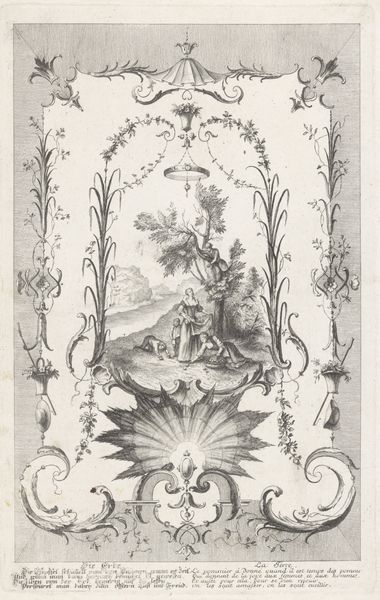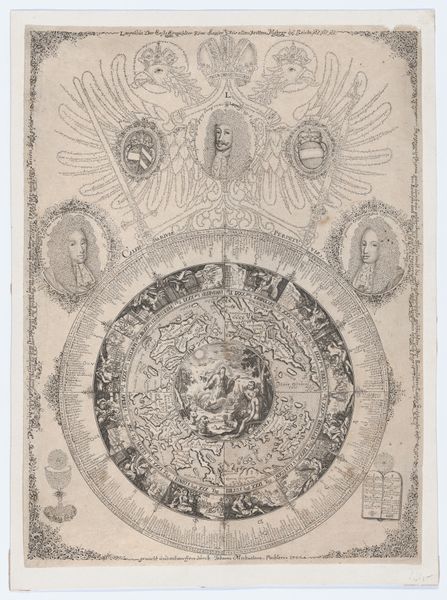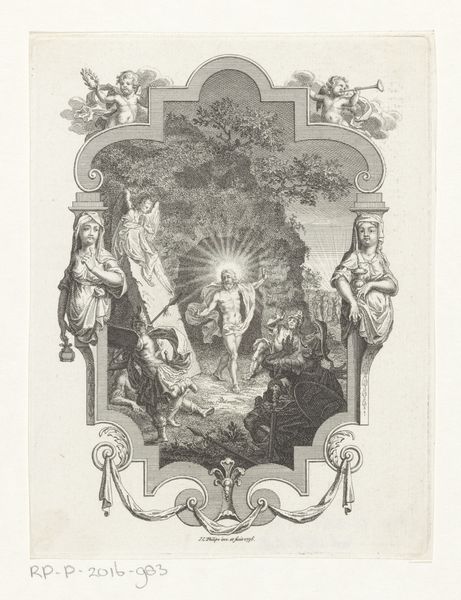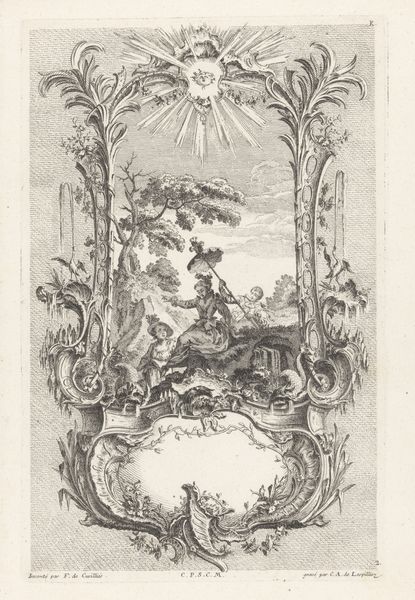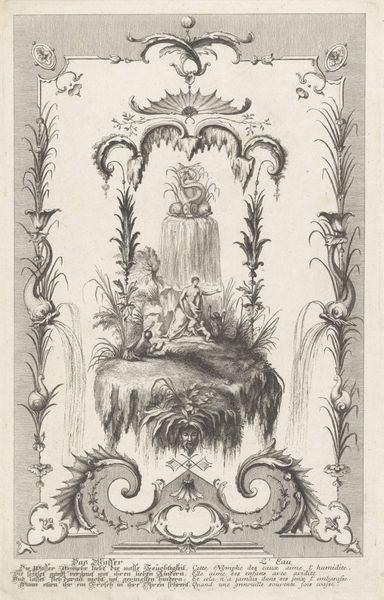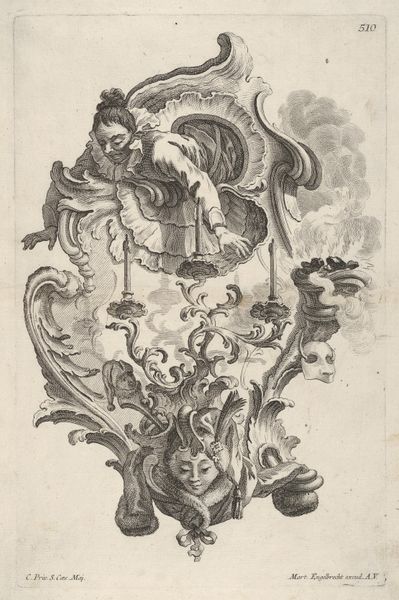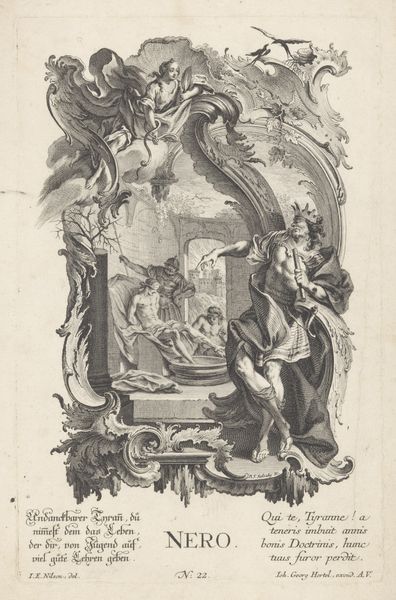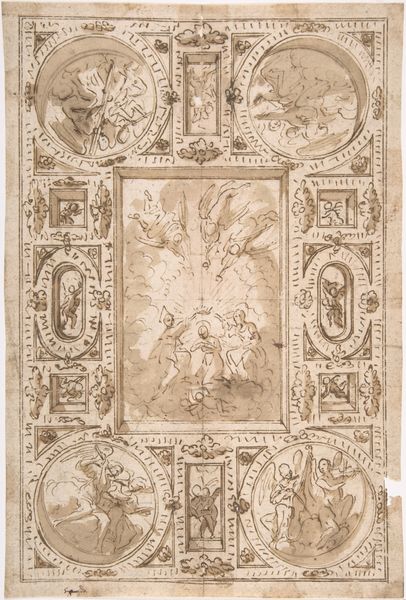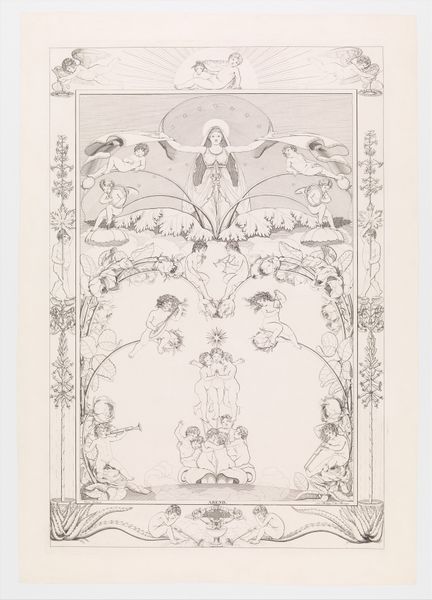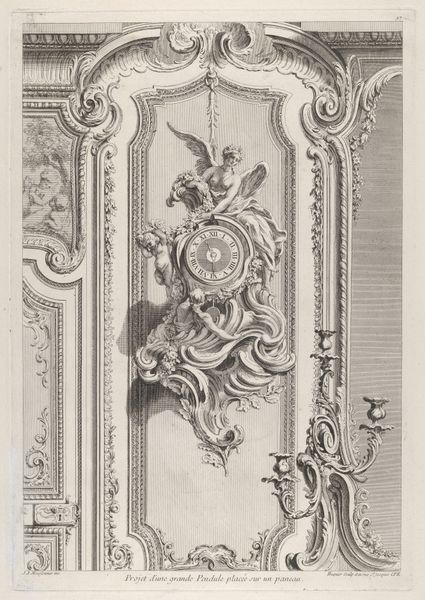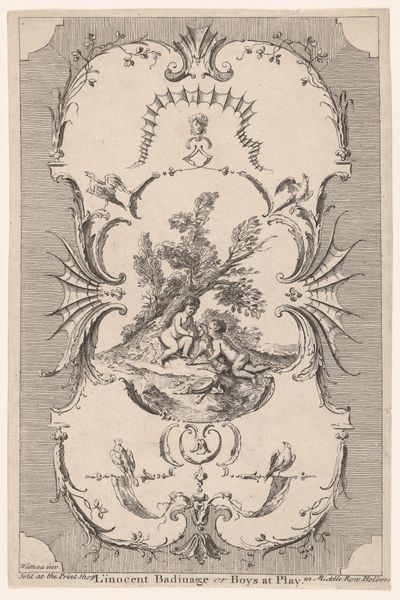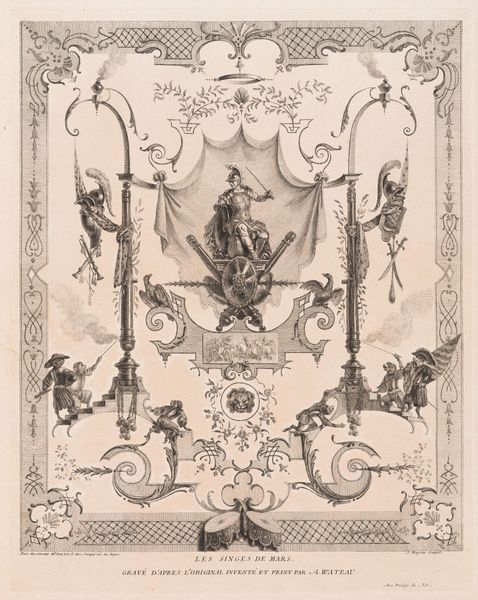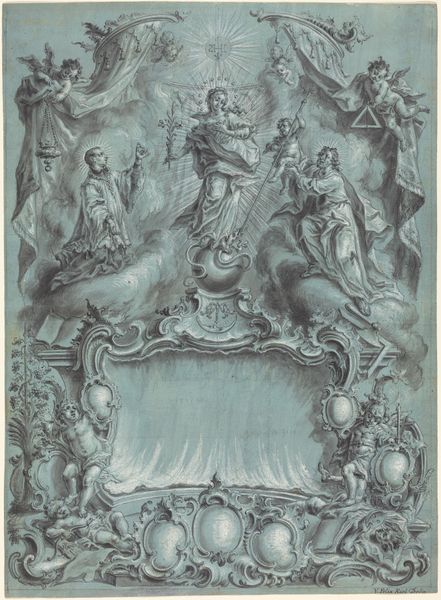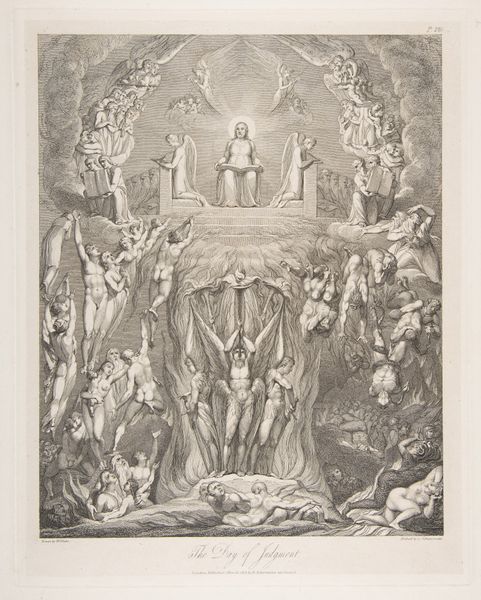
engraving
#
allegory
#
baroque
#
old engraving style
#
figuration
#
line
#
history-painting
#
engraving
Dimensions: height 442 mm, width 288 mm
Copyright: Rijks Museum: Open Domain
Claude Mellan made this print, "Monstrans met God, Maria en Johannes," using engraving techniques. The image depicts God the Father above a monstrance, a vessel used in the Catholic Church to display the Eucharist. This image uses a visual language deeply rooted in the religious and political climate of 17th-century Europe, likely France. The Catholic Church was a major power, and images like this reinforced its authority and teachings. The monstrance, richly adorned, symbolizes the Church's wealth and power. God the Father, in his divine glory, legitimizes the Church's role as intermediary between God and the people. The surrounding clouds filled with cherubic figures create a sense of awe and divine presence. As an art historian, I look at the ways that religious institutions commission art to shape belief and reinforce social hierarchies. Mellan's print offers us a window into that complex dynamic. We can research the patronage of religious orders and their role in disseminating particular ideologies through visual culture. Examining theological texts and devotional practices of the time can also reveal the deeper meanings embedded in this seemingly straightforward image.
Comments
No comments
Be the first to comment and join the conversation on the ultimate creative platform.
